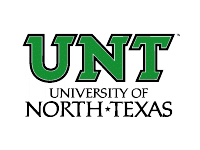Below is a summary of the abstract you submitted. Presenting author(s) is shown in bold.
If any changes need to be made, you can modify the abstract or change the authors.
You can also download a .docx version of this abstract.
If there are any problems, please email Dan at dar78@pitt.edu and he'll take care of them!
This abstract was last modified on March 15, 2022 at 5:55 p.m..

The bacteriophage Adephagia was first isolated at the University of North Texas campus in Denton, TX, in 2009. Adephagia’s genome sequence and annotation was completed in 2011, and this phage belongs to the K1 subcluster. Adephagia has 94 annotated genes, 17 of which have predicted functions based on sequence similarity. Students in the SEA-GENES program at the University of North Texas have been involved in PCR amplification, cloning, and testing the function of all the genes from Adephagia’s genome. Currently, 84 of the genes have been successfully copied by PCR from the Adephagia genome and most of these are in the process of being cloned into the pExTra plasmid for expression in the host cell and phenotypic assays. Fourteen genes (numbers 43, 49, 50, 52, 55, 56, 58, 59, 60, 62, 64, 66, 68 and 69) were phenotypically assayed for cytotoxicity to the Mycobacterium smegmatis mc2 155 host and none of them displayed toxicity. Seven genes (numbers 43, 49, 53, 54, 55, 58, 59) were also tested for their ability to provide defense properties to the host against infection by other phages, and again none of these genes resulted in defense when expressed in the M. smegmatis host. Of the 16 genes tested so far, only three of them have known predicted functions: genes 50, 66, and 69. The remaining 68 Adephagia genes that have been amplified by PCR are currently in the process of being cloned and phenotypically assayed in order to not only uncover their functions during infection of the bacterial host cell, but also to potentially one day contribute with applications in the medical field.


